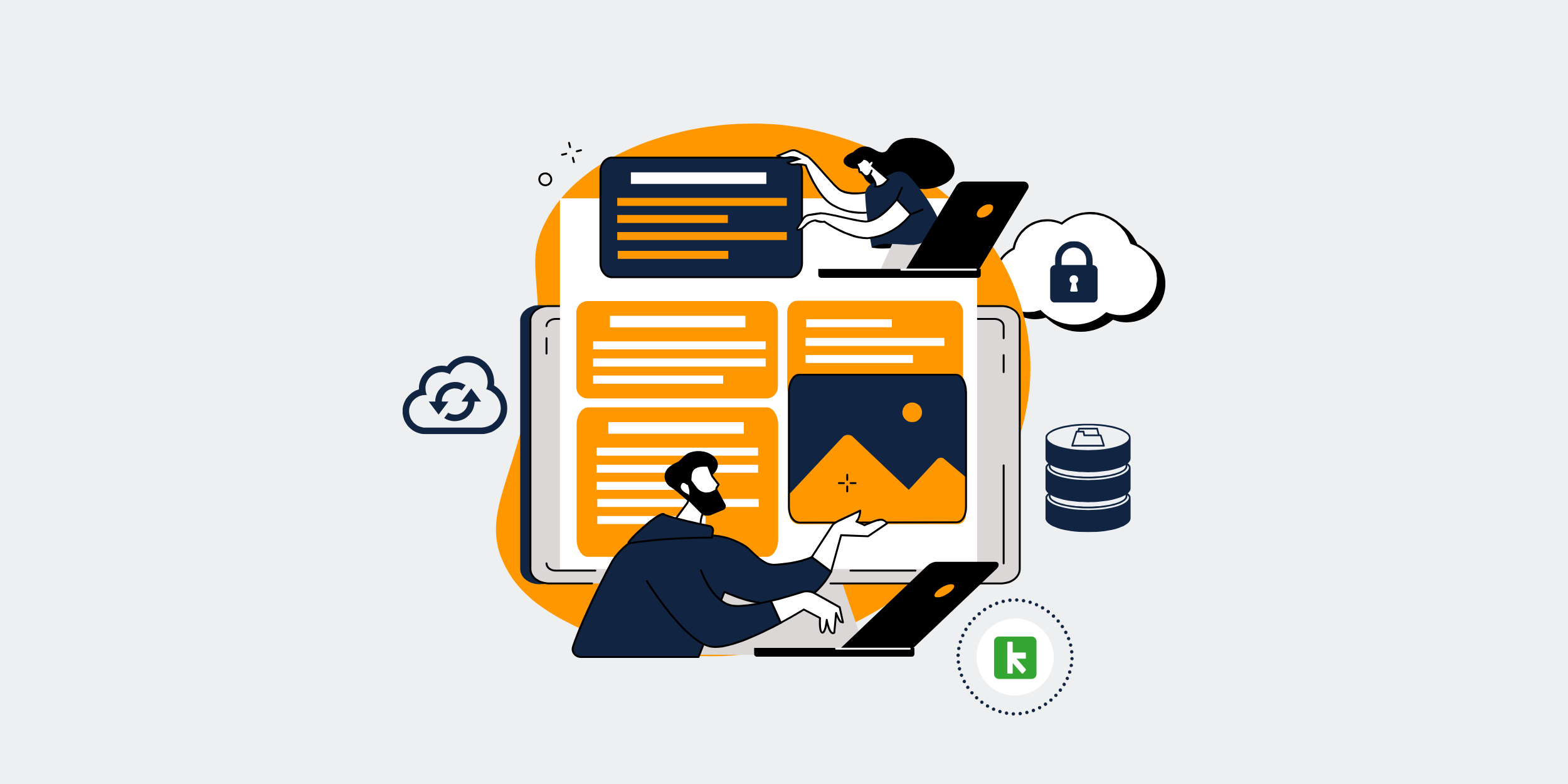The Importance of Data Backups for Keap Users in Today’s Digital Landscape

| Why Keap Businesses Must Prioritize Data Backups |
|---|
IntroductionIn today’s digital age, the importance of data cannot be overstated. For businesses using Keap, safeguarding this digital treasure is vital. But why should data backups be a priority? Let’s dive into the world of data security and discover the compelling reasons every Keap user should be on high alert about data backups. The Digital World of KeapKeap, formerly known as Infusionsoft, is a powerful tool for managing customer relationships and automating marketing tasks. But with great power comes great responsibility, especially concerning data protection. 1. Understanding Keap’s RoleKeap stores sensitive customer data, marketing funnels, sales pipelines, and more. Imagine losing all that information—it’s much like losing a treasured family photo album, irreplaceable and devastating. 2. The Fragility of DataData may seem intangible, but it’s as fragile as a sandcastle at high tide. Disruptions can wash it away in the blink of an eye, making backups a critical lifeline. What Are Data Backups?Before we delve into why backups are crucial, let’s clarify what they are. A data backup is essentially a copy of your data, stored separately so you can restore it if the original is compromised. 3. Different Types of BackupsThere are several methods to back up data: full, incremental, and differential backups. Each has its benefits, like different styles of umbrellas protecting against a storm. Keap users need to decide which one suits their needs best. Why Data Backups Are Essential for Keap UsersUnderstanding the importance of data backups can mean the difference between business continuity and catastrophic data loss. 4. Business ContinuityPicture your business as a machine. Data is the oil that keeps it running smoothly. With regular backups, you’re assured that even if the machine falters, it can be restarted without losing precious time or resources. 5. Protection Against Cyber AttacksCyber threats are like digital burglars attempting to sneak into your vault and steal jewels. Backups act as security guards, ensuring that even if burglars get through, the jewels can be replaced. 6. Human Error MitigationWe’re all human, and mistakes happen. A wrong click or accidental deletion can lead to significant data loss. Backups are your safety net when the trapeze of data management gets wobbly. 7. System Failures and Natural DisastersWhether it’s a system crash or a natural disaster like a fire or flood, backups ensure you don’t face total wipeout. They’re your digital life jacket in turbulent waters. Setting Up Effective Data Backups in KeapKnowing the importance is just the first step. Implementing an effective backup strategy in Keap is where the rubber meets the road. 8. Choosing the Right Backup SolutionNot all backup solutions are created equal. Some are cloud-based, others hardware-dependent. Assess your needs like selecting the right shoes for a hike; comfort and reliability are key. 9. Scheduling Regular BackupsConsistency is crucial. Scheduling regular backups ensures that your data is always up-to-date. Think of it like setting a regular dentist appointment—necessary and beneficial. 10. Testing Your BackupsA backup is only as good as its restoration capabilities. Regularly test your backups, ensuring the copies are as pristine as the originals. Best Practices for Keap Data BackupsFollowing best practices can enhance the effectiveness of your data backups significantly. 11. Encrypting Your DataData encryption serves as an additional layer of protection, much like a secure lock on a safe. It ensures that even if data is stolen, it remains inaccessible. 12. Offsite Storage SolutionsStoring backups offsite means your data is safe even if physical damage occurs to your main location. It’s akin to having a vacation home for your data. 13. Automation Is KeyAutomating your backup process minimizes the chance of human error and ensures consistency. It’s like setting your coffee machine to brew every morning automatically—one less thing to worry about. Challenges in Maintaining Data BackupsNo system is without its hurdles. Identifying potential challenges beforehand can keep your data smooth sailing. 14. Keeping Up with Storage CostsData storage can be as precious as real estate. Ensure you’re mindful of costs without compromising on safety. 15. Evolving Data Privacy LawsStaying compliant with ever-changing data privacy regulations is crucial. These laws are like road signs, guiding you in the right direction to avoid penalties. ConclusionData backups are no longer an option—they’re a necessity. For Keap users, prioritizing data protection ensures you’re prepared for the worst, safeguarding your digital assets. Implementing robust data backup strategies today will keep your business’s heart beating strong in the face of any data crisis. FAQsWhy are data backups so important for Keap users?Data backups are essential for ensuring business continuity, protecting against cyber threats, and mitigating human error. What types of data backups should I consider for my Keap system?Consider full, incremental, and differential backups, each offering unique advantages depending on your business needs. How often should I schedule data backups?Regular backups should be scheduled based on your data update frequency, ideally daily or weekly, to ensure data currency. Do I need to encrypt my backed-up data?Yes, encrypting your data adds an essential layer of security, ensuring that even if accessed, the data remains unreadable. How can I ensure my backups will work when needed?Regularly testing your backups ensures they restore correctly and maintain integrity, much like conducting regular fire drills. |
Get started with CRM-Backup today! Choose your plan now.
